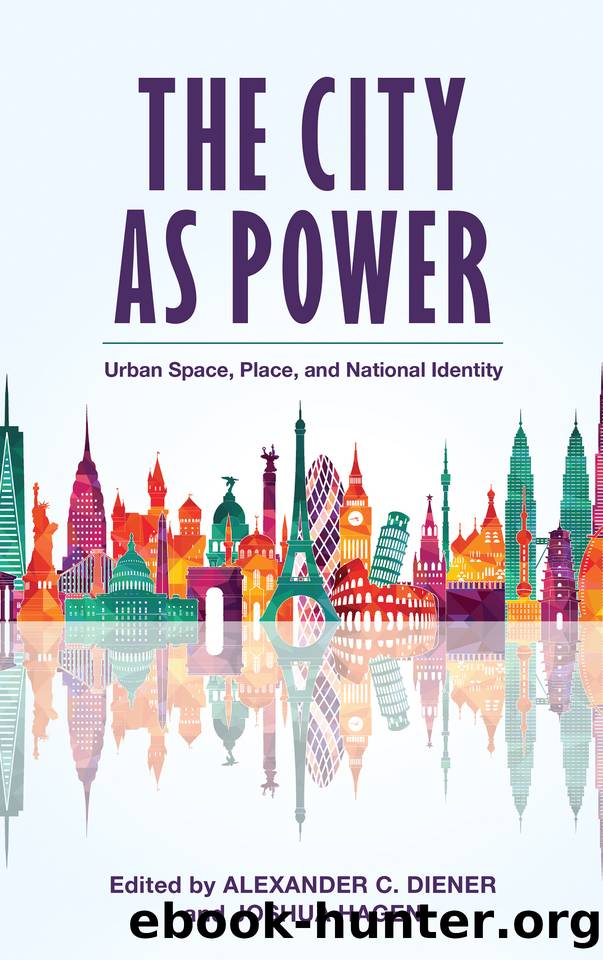The City as Power by Unknown

Author:Unknown
Language: eng
Format: mobi
Publisher: Rowman & Littlefield Publishers
Published: 2018-09-17T16:00:00+00:00
10
Urban National Politics in the United States
#BlackLivesMatter and the Challenges to Normative National Identity
Joshua F. J. Inwood
T he summer of 2016 was a difficult time in the relationship between police forces in the United States and the African American community. In July, during a peaceful #BlackLivesMatter (BLM) protest, Michah Johnson, an Afghanistan War veteran, ambushed Dallas, Texas, police officers who were providing security for the march.1 In a hail of gunfire, five police officers were killed, and eleven others were wounded. Two weeks later in Baton Rouge, Louisiana, three police officers were killed in another ambush-style attack.2 These murders are undeniably tragic and shocking. Yet they have occurred in a specific geographical context that illuminates the role of police in African American communities and the continuing debate about police violence in minority communities. As of August 25, 2016, at least 136 African American men and women had been killed by police forces across the United States.3 These deaths were the reason people were rallying in Dallas in the first place. In some cases, the use of deadly force by police forces can be justified, but this body count highlights a range of issues about the role of militarized policing, the continued significance of race and racism, the histories and legacies of slavery, the role of guns and violence in the United States, and the growth of the prison-industrial complex.4 In short, to understand the unfolding crisis of policing in the United States is to understand how the spatialities of white supremacy continue to define space and place in the United States.5
Equally important is how this moment reflects broad political currents in the United States that connect to a longer history of political activism in urban African American communities. 6 Over the course of the last half century, African American politicsâgrounded in particular urban conditions of oppression and resistanceâhave emerged and are related to historic understandings of African American identity. These changes have their roots in the âGreat Migration,â as shifts in African American populations from a largely southern and rural context to a more urban and northern environment reshaped the African American experience and understandings of African American identity on the national scale. 7 While myriad examples illustrate this reality, from the Harlem Renaissance to the Black Panther Party to Malcolm X, I argue in this chapter that we need to see the response to the killing of African Americans by the police in the United Statesâknown as the #BlackLivesMatter movementâas the culmination of broad changes in African American urban politics over the last half century. 8
While BLM is an international movement that has engaged with police abuse in Europe and Canada, this chapter focuses on how it is manifest in the United States and in particular on the way activists draw from currents of Black nationalism to engage with policing tactics and strategies. Over the last five years in the United States, BLM has brought attention to the number of African American men and women who have lost their lives at the hands of the police or security officials in the United States.
Download
This site does not store any files on its server. We only index and link to content provided by other sites. Please contact the content providers to delete copyright contents if any and email us, we'll remove relevant links or contents immediately.
Machine Learning at Scale with H2O by Gregory Keys | David Whiting(4290)
Never by Ken Follett(3931)
Harry Potter and the Goblet Of Fire by J.K. Rowling(3842)
Unfinished: A Memoir by Priyanka Chopra Jonas(3372)
Fairy Tale by Stephen King(3366)
The Man Who Died Twice by Richard Osman(3066)
Will by Will Smith(2904)
Rationality by Steven Pinker(2349)
It Starts With Us (It Ends with Us #2) by Colleen Hoover(2333)
Can't Hurt Me: Master Your Mind and Defy the Odds - Clean Edition by David Goggins(2319)
The Dark Hours by Michael Connelly(2299)
The Storyteller by Dave Grohl(2225)
Friends, Lovers, and the Big Terrible Thing by Matthew Perry(2212)
The Becoming by Nora Roberts(2187)
The Dawn of Everything: A New History of Humanity by David Graeber & David Wengrow(2186)
The Stranger in the Lifeboat by Mitch Albom(2111)
Cloud Cuckoo Land by Anthony Doerr(2089)
Love on the Brain by Ali Hazelwood(2056)
Einstein: His Life and Universe by Walter Isaacson(2005)
